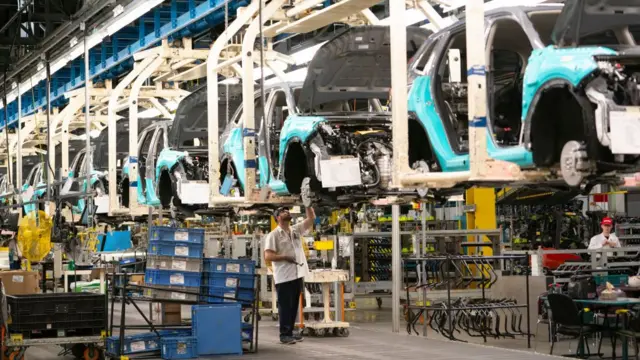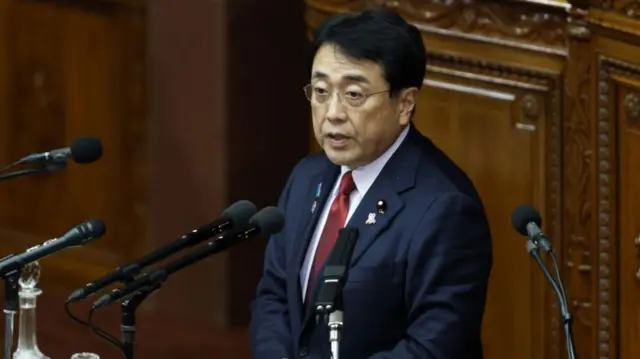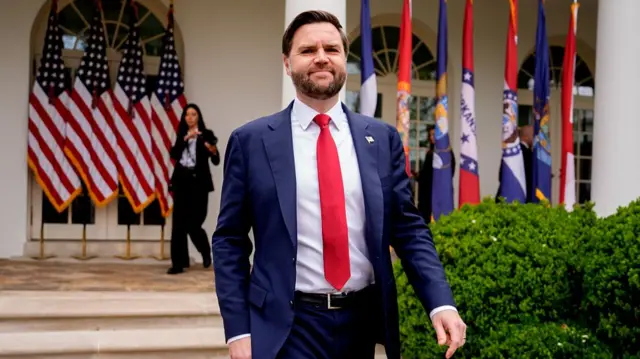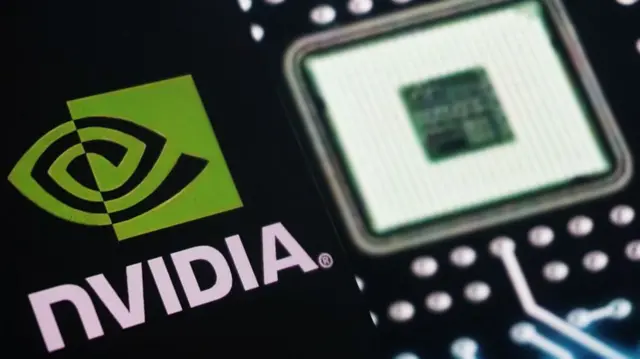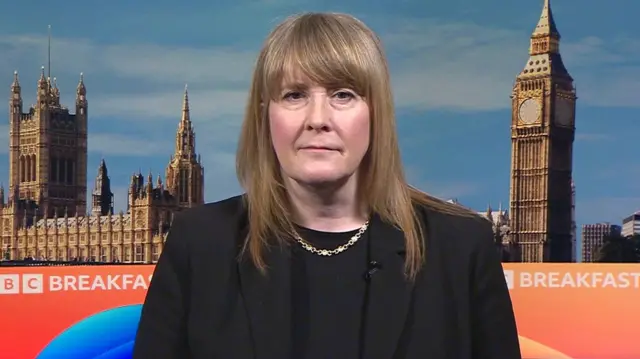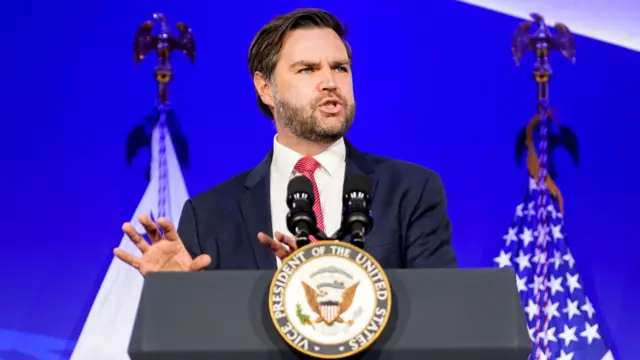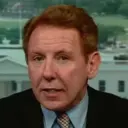'Good chance' of US-UK agreement as Vance talks trade dealspublished at 12:56 British Summer Time 15 April
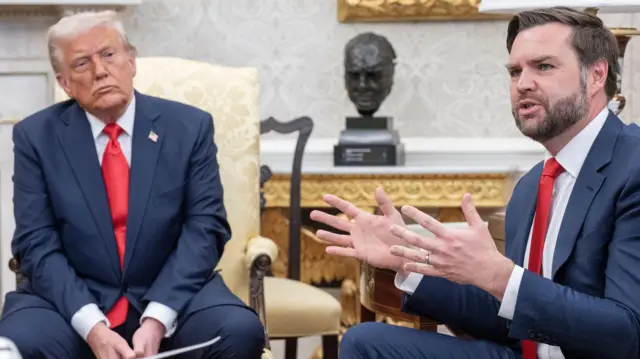 Image source, KEN CEDENO/POOL/EPA-EFE/REX/Shutterstock
Image source, KEN CEDENO/POOL/EPA-EFE/REX/ShutterstockAs we’ve been reporting, US Vice-President JD Vance says there is a “good chance” that the US and UK will come to a mutually beneficial trade agreement, in comments released overnight. He told news outlet UnHerd that the US is “working very hard” with UK Prime Minister, Keir Starmer.
UK Industry Minister Sarah Jones agreed with Vance’s assessment, but declined to provide BBC Breakfast with a “timeline” for when a deal may be reached.
Elsewhere, countries such as India, Japan and Indonesia are working towards an agreement with the US to limit potential charges from Trump’s tariffs - with officials from Indonesia arriving in Washington later today for talks.
In China, US imports of Boeing jets, beef, soybeans and other goods have taken a hit as the country retaliates against the 145% tariff imposed by Trump.
Meanwhile, those in the pharmaceutical and semiconductor industries await the findings of "national security" investigations, which could lead to their tariff exemptions ending and a potential surge in the price of healthcare.
For now, we are pausing our live coverage and will be back if there are any major developments.
In the meantime, you can keep across this story with the rest of our coverage:

